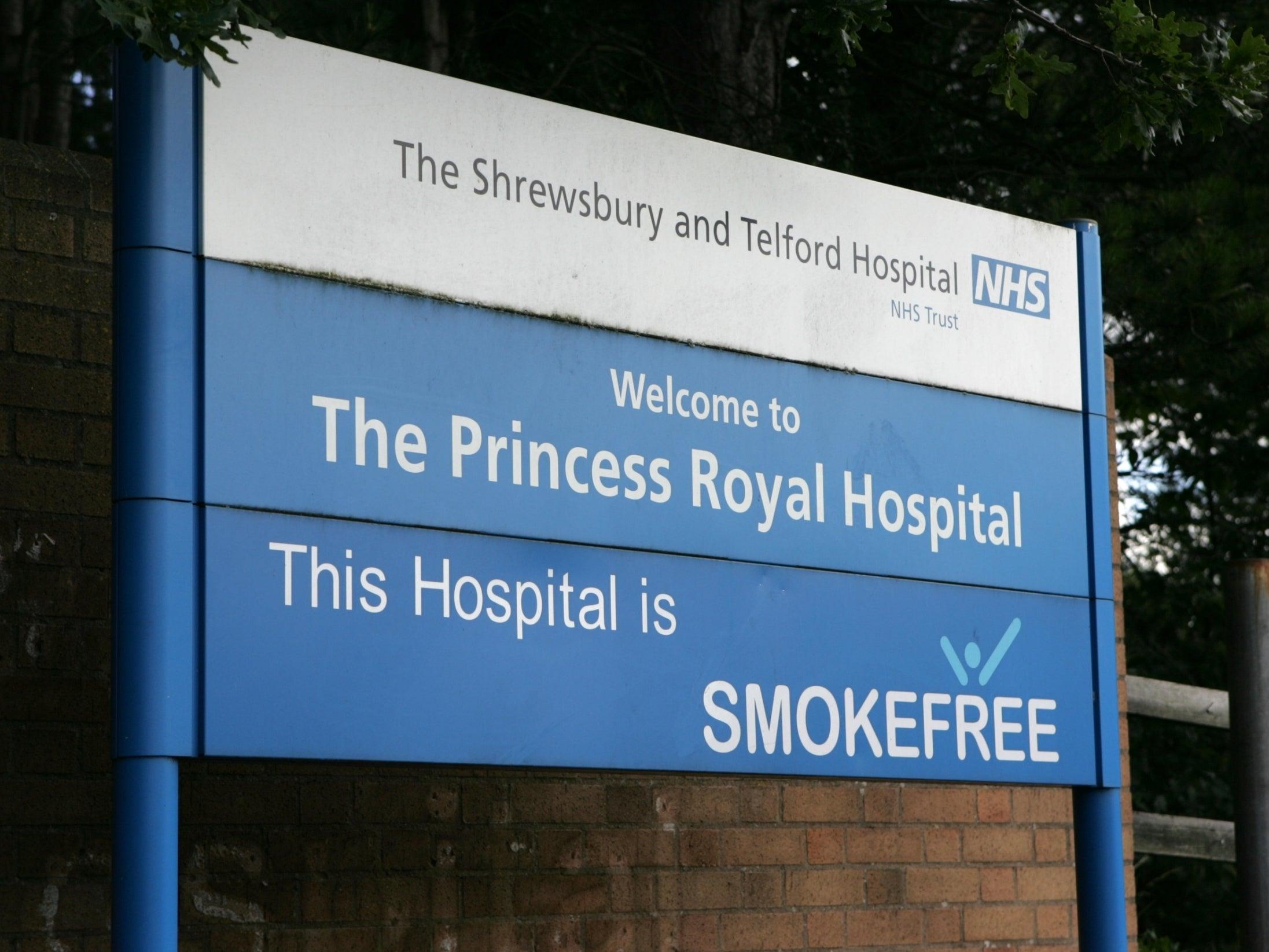Elderly patients waiting hours in ambulances outside scandal-hit hospital
Care watchdog gives trust worst rating again but says improvements to services have been made

Your support helps us to tell the story
From reproductive rights to climate change to Big Tech, The Independent is on the ground when the story is developing. Whether it's investigating the financials of Elon Musk's pro-Trump PAC or producing our latest documentary, 'The A Word', which shines a light on the American women fighting for reproductive rights, we know how important it is to parse out the facts from the messaging.
At such a critical moment in US history, we need reporters on the ground. Your donation allows us to keep sending journalists to speak to both sides of the story.
The Independent is trusted by Americans across the entire political spectrum. And unlike many other quality news outlets, we choose not to lock Americans out of our reporting and analysis with paywalls. We believe quality journalism should be available to everyone, paid for by those who can afford it.
Your support makes all the difference.Elderly patients were being held for hours in ambulances outside of A&E at a hospital which has been plagued with care scandals, a report has revealed.
Shrewsbury and Telford Hospital Trust has been given an inadequate rating by care watchdog the Care Quality Commission for the third time since 2018, in a report published on Thursday.
However, the CQC did find the hospital had made improvements in its services, which would “lay the foundations to considerably improving patient care.”
During inspections in July and August this year the care watchdog found patients waiting hours to be assessed when they arrived at the Royal Shrewsbury Hospital, with one patient waiting more than five hours.
Inspectors also found patients waiting for long periods in the back of ambulances. In one incident the CQC reported an elderly patient with a hip fracture had waited more than three hours in an ambulance adding “many other patients over 75 years old had waited between two and three hours before accessing the emergency department.”
Previously the trust was found to have left patients in corridors whilst waiting, but a change in approach has meant they are left waiting in ambulances.
The report on SATH comes amid increasing concerns over delays in the ambulance sector, which are driven by long waits for ambulances to handover patients to A&Es.
Shrewsbury and Telford Hospital Trust is one of the worst culprits for ambulance handover delays in the West Midlands. According to the CQC the percentage of patients at SATH waiting more than 60 minutes outside of A&E in an ambulance was higher that the average for hospitals in the Midlands and England overall.
However, in its report, the CQC said: “Whilst this was not what senior staff in the department wanted it allowed for patients to be monitored by a paramedic whilst waiting for transfer into the emergency department.”
Shrewsbury and Telford Hospital Trust is at the centre of the largest maternity scandal in history. A final report from an independent inquiry, led by Donna Ockenden, into more than 1,200 allegations of harm is the trust is due to be published later this year.
In its report, the CQC raised concerns again about the safety of maternity staffing levels at the trust, but did identify several improvements.
It said: “Midwifery staff showed immense levels of resilience as they were able to continue to provide high levels of care to women and babies and maintained a positive and caring attitude during extremely challenging circumstances.
“The maternity department was under considerable scrutiny following the publication of the first Ockenden review (independent review of maternity services) and during the Covid-19 pandemic. This was in addition to the maternity service’s ongoing challenges with the stability of the senior maternity leadership team which further impacted on staff.”
Ted Baker, chief inspector of hospitals for the CQC, said: “I recognise the enormous pressure NHS services are under across the country and that usual expectations cannot always be maintained, but it is important they do all they can to mitigate risks to patient safety while facing these pressures.
“Despite these pressures, the trust has made progress. It has benefited from more effective leadership that has helped drive improvements, and it has a much better understanding of the challenges it faces.
“However, its risk management remains inconsistent and we are not assured it is doing all it can to ensure people’s safety.
“This is particularly concerning in urgent and emergency care at the Royal Shrewsbury Hospital, where people did not always receive timely assessment to identify their needs, meaning staff were not aware whether people needed urgent treatment or not.”
Louise Barnett, chief executive at for SATH, said: “In incredibly difficult circumstances, progress has been made in key areas and much has been done to improve the way we work and deliver care. Our team has shown enormous dedication and commitment and I want to thank them for their exceptionally hard work to bring about these positive changes.
“However, the report also reinforces the amount there is still to do on the trust’s improvement journey. We are determined to build on this progress and use this, and the report, as a stepping stone to provide excellent care across all our services for patients and families in our communities.”



Join our commenting forum
Join thought-provoking conversations, follow other Independent readers and see their replies
Comments